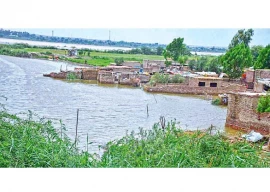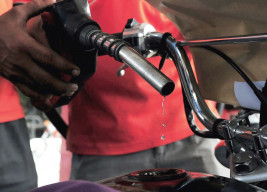
The only chemical laboratory in Sukkur has been running headless after its chief examiner retired on July 22 this year, leading to a large pile-up of test samples.
The post of the examiner is of grade-20 and the chief minister's approval is required for the appointment, said the former chief chemical examiner, Dr Tariq Abbas Dareshani. "Keeping in view the sensitivity of the post, I wrote letters to the health secretary before my retirement, requesting him to appoint a new chief chemical examiner as soon as possible but, despite the lapse of two and a half months, nobody was posted," he said.
Read: Headless for now: Panel to probe lawmakers’ tax evasion runs aground

There are only two chemical laboratories in Sindh, one situated in Karachi and the other in Sukkur, which was established in 1986 and consists of four sections. Dr Dareshani said that the laboratory in Sukkur is catering to the needs of 11 districts of upper Sindh, while the rest are being taken care of by the Karachi laboratory.
The departments of the Sukkur laboratory include the semen examining section, where samples of sodomy and rape victims are analysed, the excise section, where narcotics including, heroin, charas, illicit liquor and others are tested, the third section deals with human blood testing and the last section with poisoning cases.
Read: Climate change ministry: Headless body grapples ahead of Paris climate conference
In case of sodomy or rape cases, samples of the victims are brought by the area police for testing, said an official of the laboratory. In excise section variety of narcotics are tested for their quality, he added. The human blood testing section receives samples such as blood soaked earth or the weapon used in the murder, for testing. Similarly in poisoning cases, the deceased person's organs such as the heart, kidneys, small and large intestine are sent for examination to determine whether the victim was poisoned or not, he added.
Talking about the importance of the post, Dareshani said that the chief examiner has to personally examine all the tests before signing the reports. The laboratory receives around 40 to 50 cases of narcotics in a month, while cases of poisoning or rape are low in number, he added. However Dareshani said that the lab receives five to eight cases of human blood every month.
If the samples are not stored properly and kept for a long time, they will become useless, Dareshani said, adding that excessive delay in the testing surely leads to the delay in dispensing justice to the victims.
Read: Nearly headless Sindh
Meanwhile, the CM House spokesperson insisted the CM cannot appoint anyone until the relevant department sends them a summary or sends a formal request. "The health department has yet to send any recommendation relating to the appointment of chemical examiner," he said.
Published in The Express Tribune, October 17th, 2015.






















COMMENTS
Comments are moderated and generally will be posted if they are on-topic and not abusive.
For more information, please see our Comments FAQ